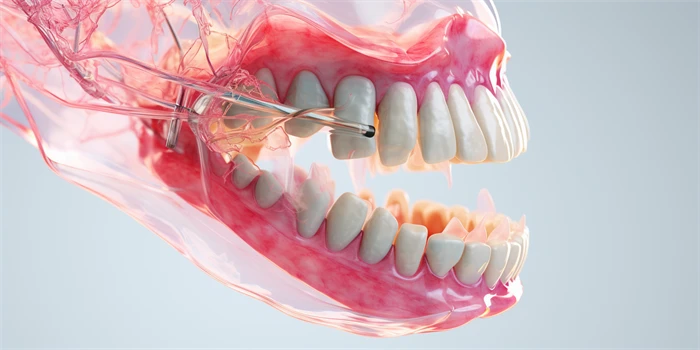Dental implant surgery is an effective and common procedure used to replace missing teeth. If you are considering this treatment, you may have heard about the option of being asleep during the surgery. In this article, we will explore this topic in detail, providing insights into the process, benefits, and considerations surrounding being asleep for dental implant surgery.

The Process of Being Asleep for Dental Implant Surgery
When it comes to dental implant surgery, being asleep during the procedure is commonly referred to as general anesthesia. General anesthesia is administered by a trained anesthesiologist who carefully monitors your vital signs throughout the surgery. This ensures your safety and comfort during the procedure.
Before the surgery, you will have a consultation with the anesthesiologist to discuss your medical history, any allergies you may have, and any concerns you may have about being asleep during the procedure. The anesthesiologist will explain the process and answer any questions you may have.
During the surgery, medications will be administered intravenously to induce a state of unconsciousness. Once asleep, a breathing tube may be inserted to help you breathe comfortably throughout the procedure. The dental surgeon will then proceed with the implant placement, guided by a detailed treatment plan.
After the surgery is completed, you will be carefully monitored as you wake up from the anesthesia. Once you are fully awake and stable, you will be released to go home with a designated adult responsible for your care.
The Benefits of Being Asleep for Dental Implant Surgery
There are several benefits to consider when deciding whether to be asleep during dental implant surgery:
1. Comfort:
Being asleep during the surgery ensures that you are completely comfortable and pain-free. You will not be aware of the procedure taking place, eliminating any anxiety or discomfort associated with being awake.
2. Time Perception:
Under general anesthesia, time can seem to pass quickly. The surgery that may feel long to the conscious mind may feel like a short nap to those who are asleep.
3. Reduced Movement:
Being asleep allows for complete relaxation of your muscles, minimizing unwanted movement during the surgery. This helps the dental surgeon perform the procedure with precision.
4. Complex Procedures:
For complex dental implant surgeries that involve multiple implants or bone grafting, being asleep can be advantageous. It allows the dental surgeon to perform intricate procedures without interruptions or discomfort to the patient.
Considerations When Opting for General Anesthesia
While being asleep during dental implant surgery has its benefits, there are important considerations to keep in mind:
1. Cost:
The cost of general anesthesia for dental implant surgery varies depending on the duration of the procedure and the location of the dental clinic. On average, the cost can range from $500 to $1500.
2. Medical History:
Patients with certain medical conditions may not be suitable candidates for general anesthesia. It is crucial to discuss your medical history with your dental and anesthesia providers to ensure your safety during the surgery.
3. Recovery Time:
Recovery from general anesthesia can take a few hours. You may experience grogginess, drowsiness, and temporary memory loss. It is important to have a proper recovery plan and someone to assist you during this period.
4. Potential Risks:
General anesthesia carries some risks, although they are uncommon. These risks include allergic reactions, breathing difficulties, and adverse reactions to medications. An experienced anesthesiologist will minimize these risks by carefully monitoring you throughout the procedure.
Frequently Asked Questions
1. Can everyone be asleep for dental implant surgery?
No, not everyone is a suitable candidate for general anesthesia. It is important to discuss your medical history with your dental and anesthesia providers to determine if it is a viable option for you.
2. Will I feel any pain during the surgery if I'm asleep?
No, general anesthesia ensures that you are completely asleep and pain-free during the surgery. The dental surgeon will use local anesthesia before the procedure to further ensure your comfort.
3. How long does the effect of general anesthesia last?
The effect of general anesthesia typically wears off within a few hours after the surgery. However, you may still feel groggy or drowsy for the rest of the day. It is important to have a proper recovery plan and take it easy during this time.
Expert References
Here are some authoritative references that provide further information on dental implant surgery and general anesthesia:
- American Association of Oral and Maxillofacial Surgeons: This website offers comprehensive information on dental implant surgery, including anesthesia options.
- American Society of Anesthesiologists: The official website of the American Society of Anesthesiologists provides in-depth resources on general anesthesia and its safety guidelines.
- PubMed: This scientific article explores the safety and effectiveness of general anesthesia for dental implant surgery.
In conclusion, being asleep for dental implant surgery can provide added comfort and relaxation during the procedure. Discussing your options with your dental and anesthesia providers is essential to determine if general anesthesia is the right choice for you. Remember to consider the cost, medical history, recovery time, and potential risks associated with this type of anesthesia. With careful consideration and guidance from professionals, you can make an informed decision about being asleep for your dental implant surgery.



